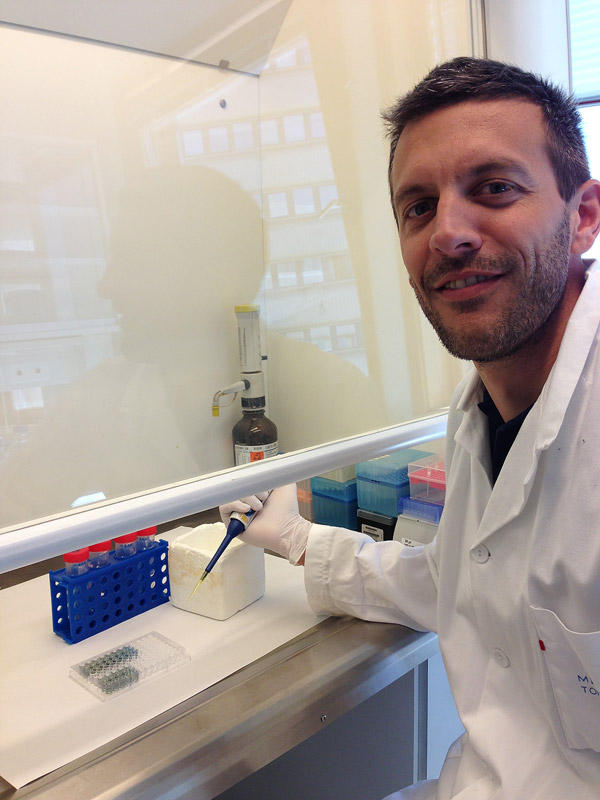WHAT – eating salmon may not be good for me?
We have been told for years that oily fish contain the “right” kinds of fats: fats that are good for us. Is this not true?

Hovedinnhold
The problem is that many environmental pollutants are stored in fats – including the “good” fat of salmon.
For several years now BIO researcher Jérôme Ruzzin has become increasingly intrigued and concerned with this issue. Ruzzin highlights an increasing number of new studies that are documenting a disturbing and highly unexpected trend: studies involving people regularly eating two or more servings of fish per week - especially “good” fatty fish - have been shown to develop an increasing risk for getting type 2 diabetes.
How can this be happening?
The downside of living in an industrialised society
Many environmental pollutants are fat-soluble. When fat-soluble compounds are ingested by organisms, including ourselves, they are stored in the fatty tissues and organs where they can remain for long periods of time (up to several years). Top predators, such as humans, polar bears, tuna and even salmon, ingest the compounds stored in the fats of all the organisms below them in the food chain. Thus fat-stored contaminants may be in low (and non-toxic) levels for organisms at lowest levels of the food chain, but these become increasingly concentrated as one moves up the chain.
Environmental pollutants may cause type 2 diabetes
Because it is difficult to undertake experiments on environmental pollutants directly on humans, Ruzzin has had to study this question indirectly. Recently he undertook some studies in rats and mice that had dramatic results – contaminated oils from salmon are definitely implicated in increased obesity and incidence of type 2 diabetes in the research animals. The environmental pollutants in the oils are decreasing the animals sensitivity to insulin. If this decrease is not stopped the animals will develop a cascade of negative health effects including obesity and type 2 diabetes, as well as others shown on the wheel in the image.
Read more about Ruzzin's studies in this accompanying .pdf.
Ruzzin’s interest coincided with the research concerns of Professor Anders Goksøyr, Department Head at BIO. For many years Goksøyr has been studying the effects of environmental pollutants.
Read more about their work in a translation of their recent article in Bergens Tidende, the most widely read paper in Western Norway.
